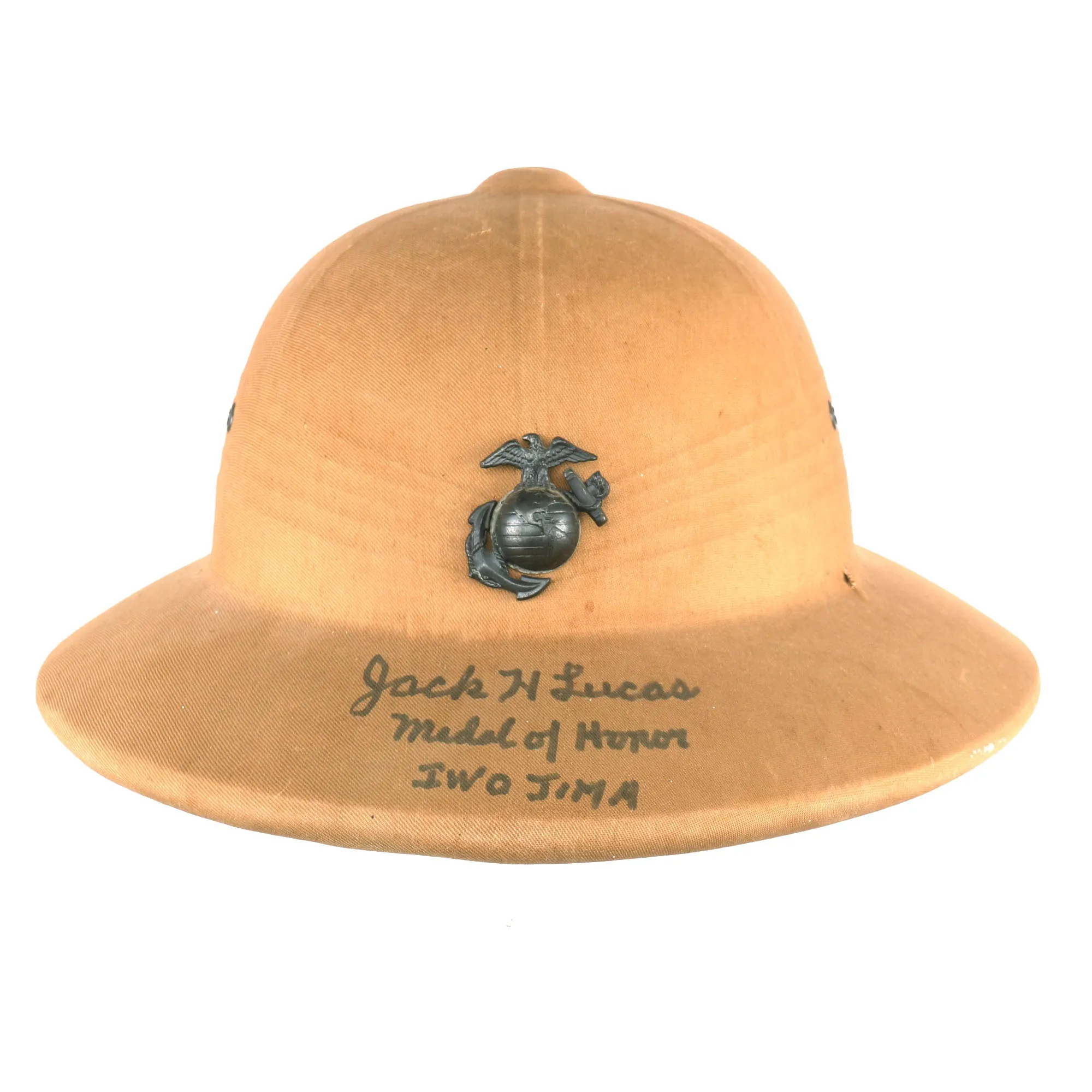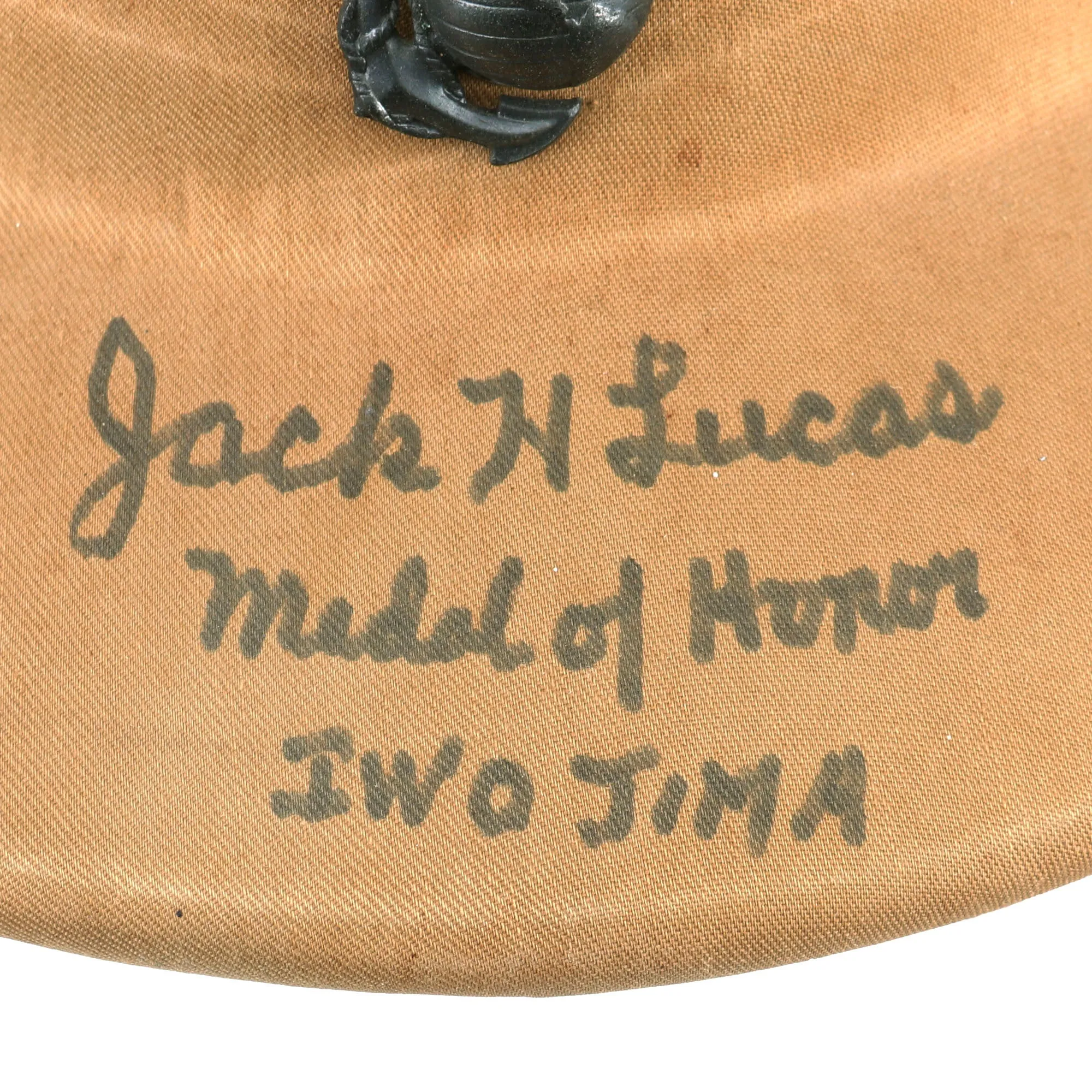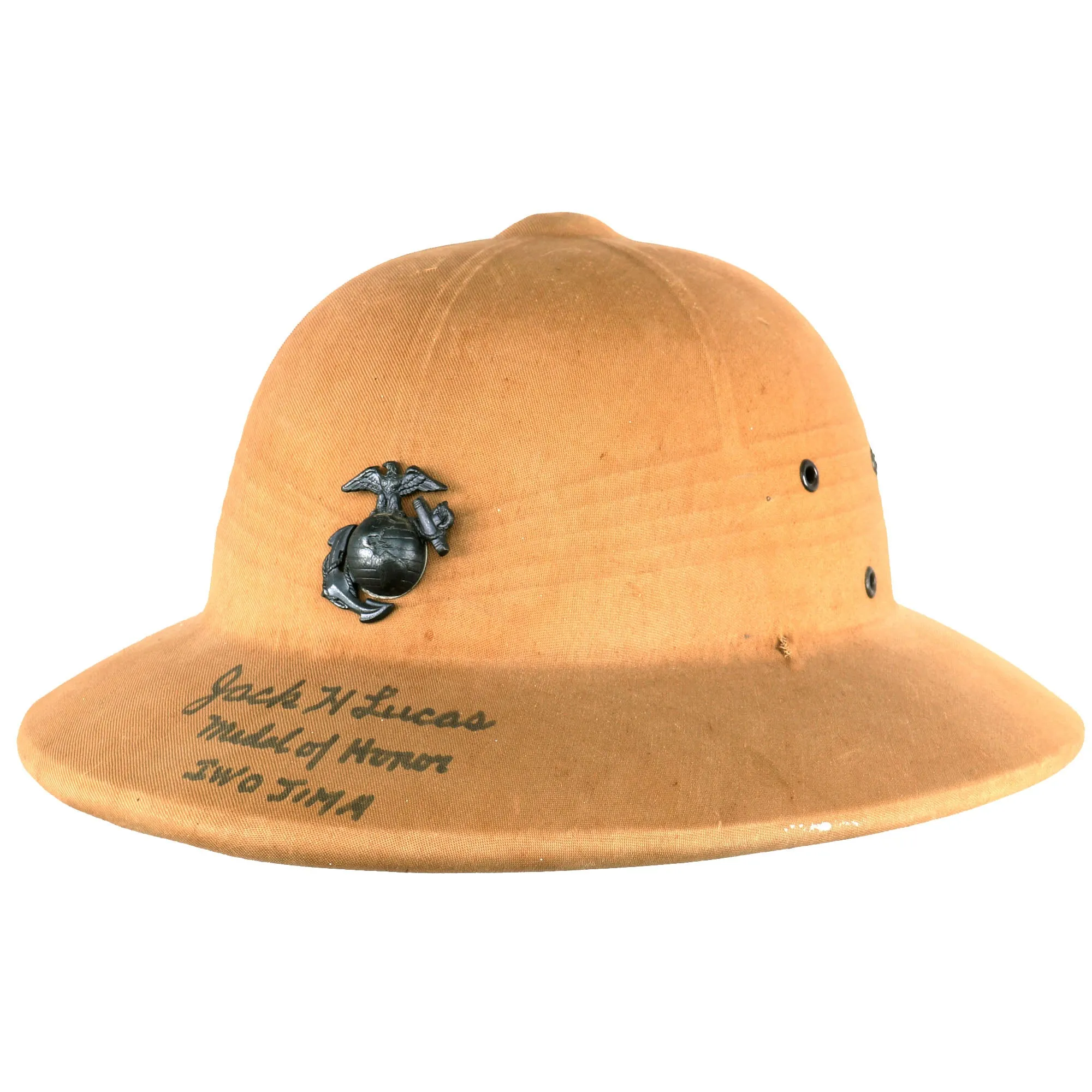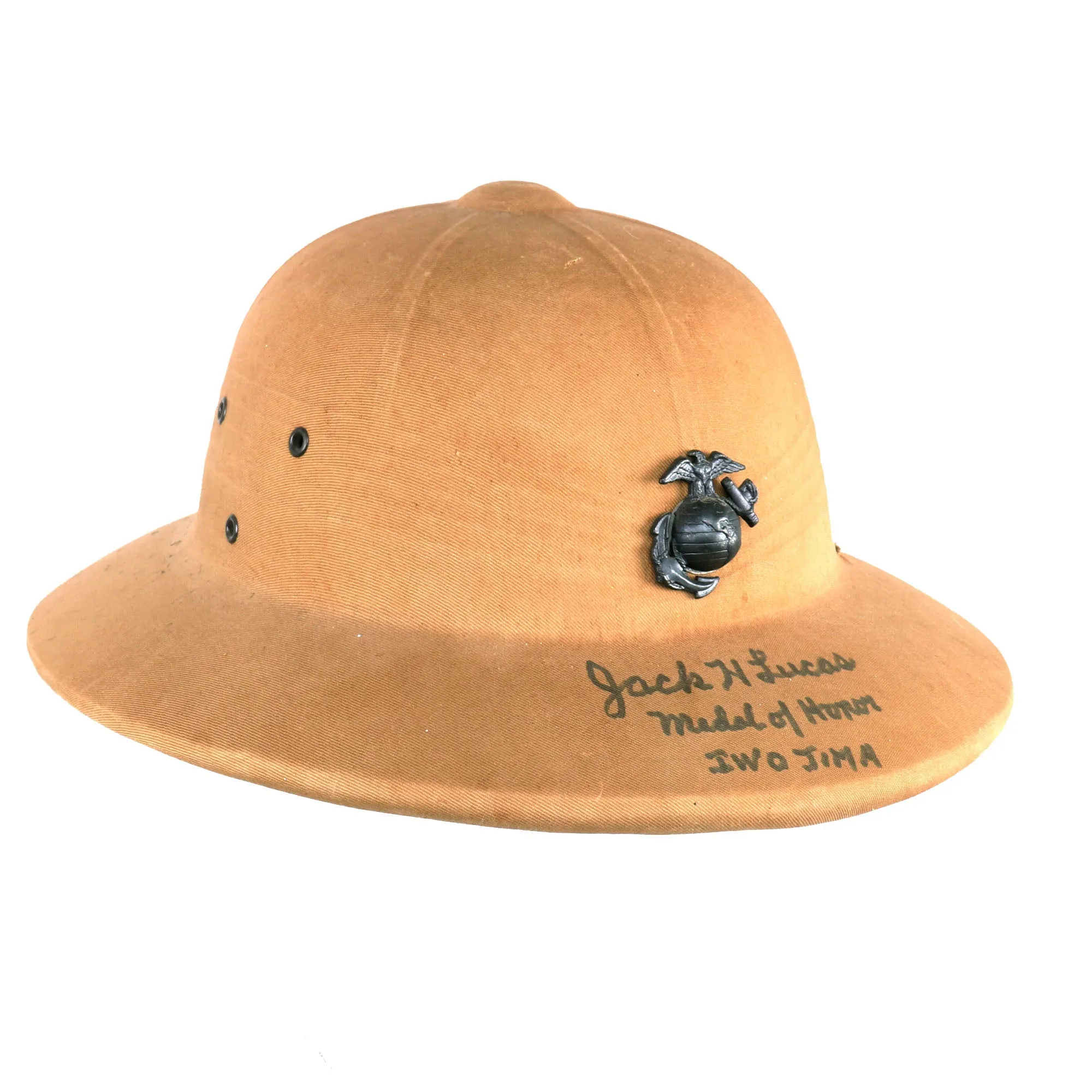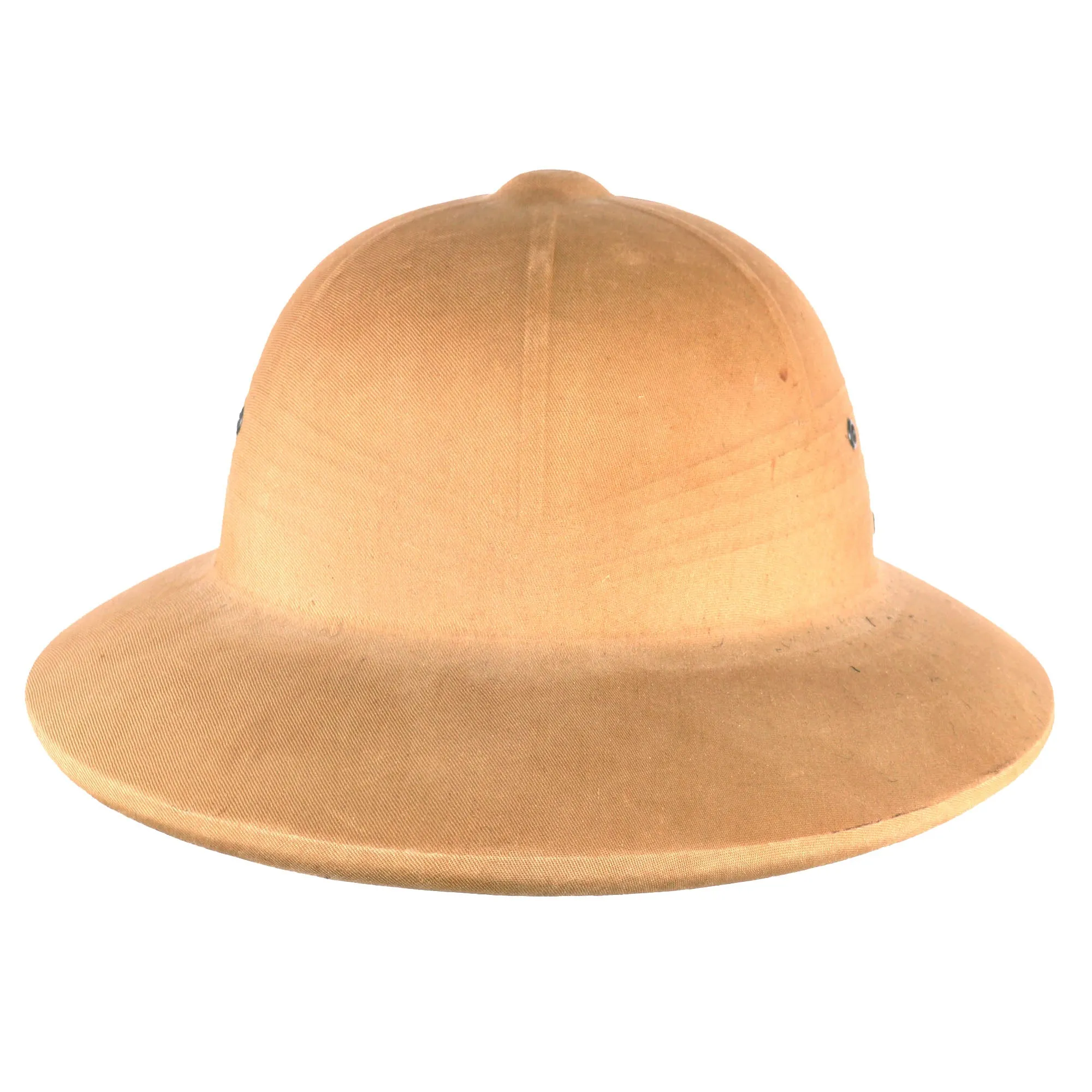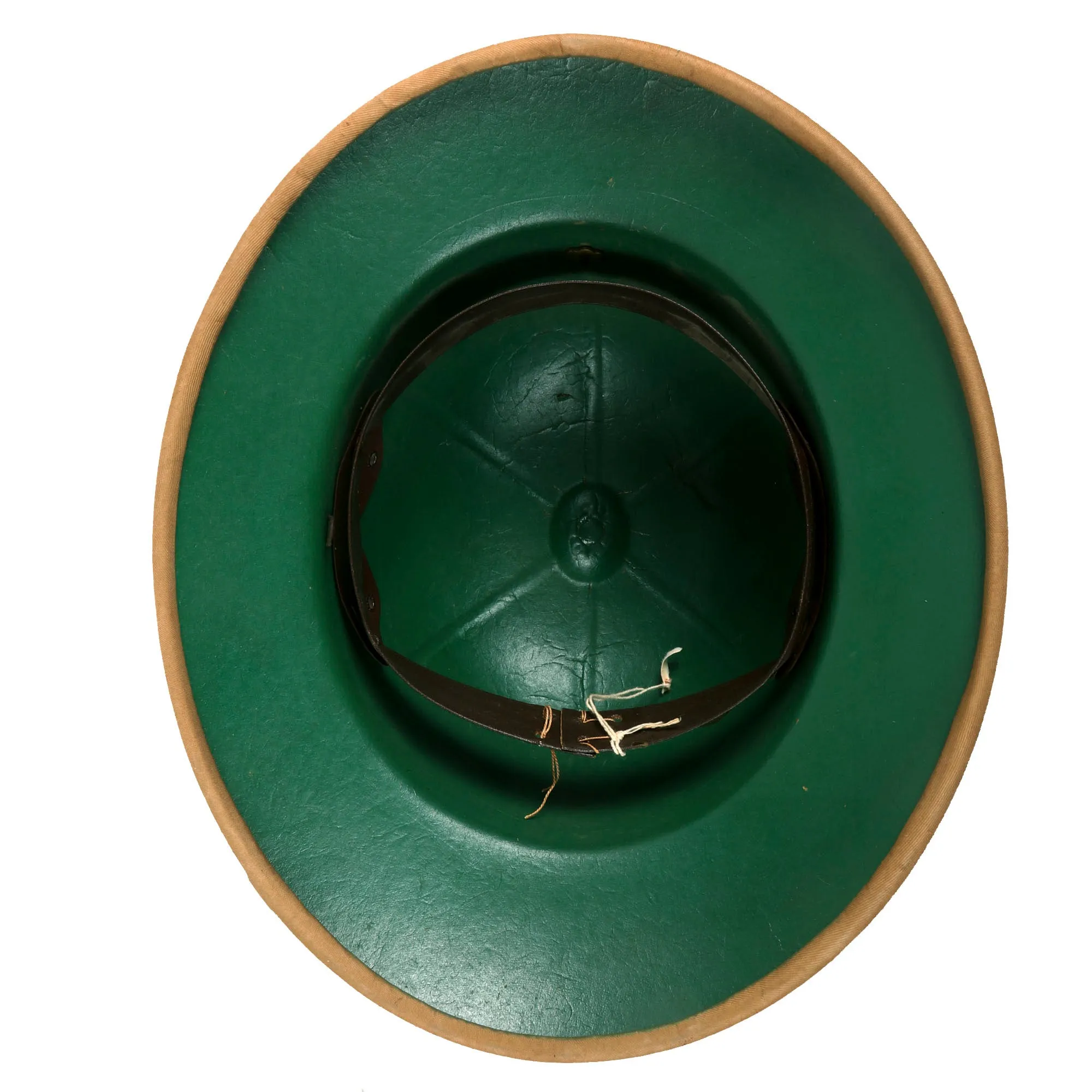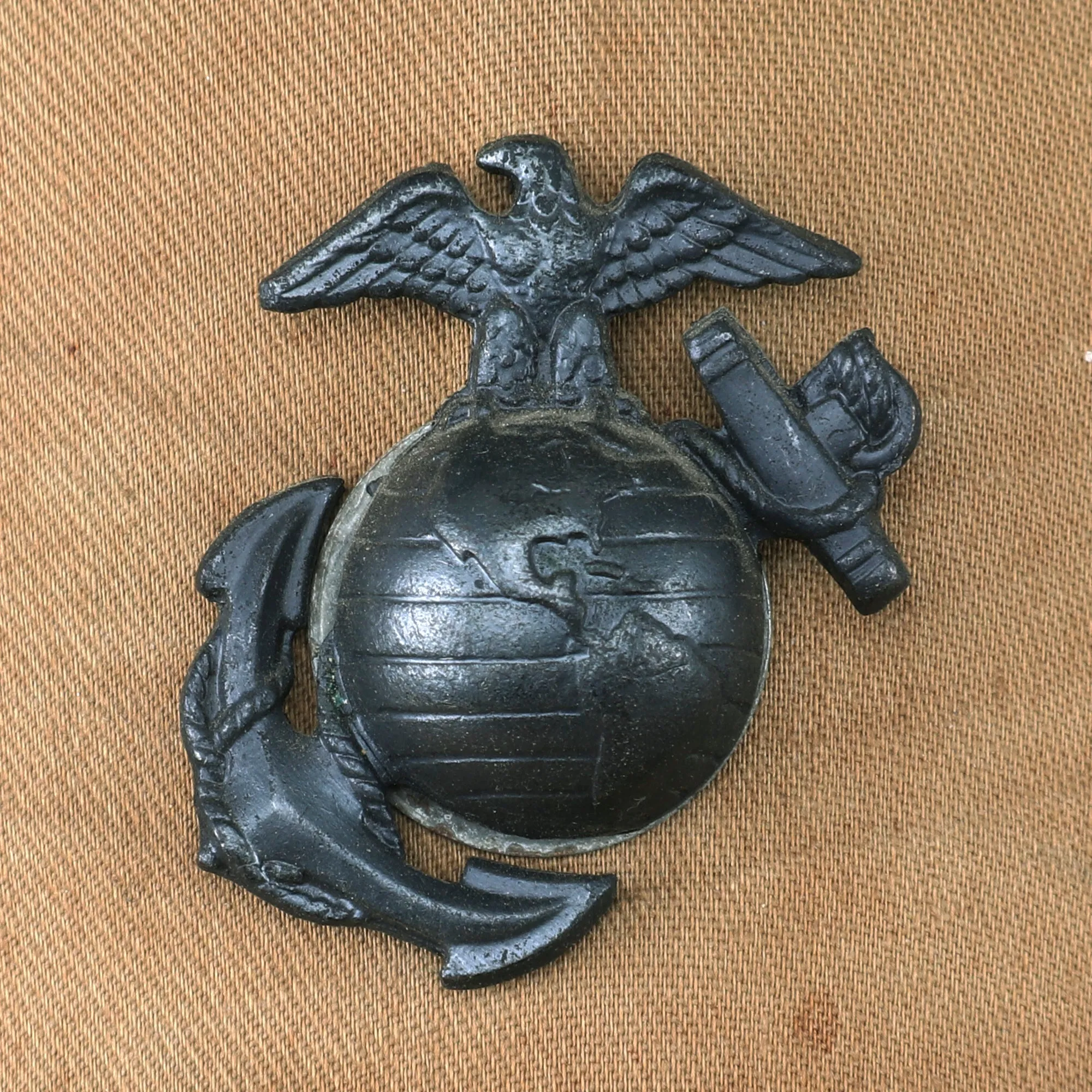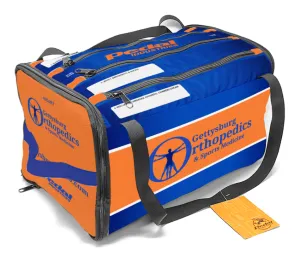Original Item: Only One Available. This is a great & genuine United States Marine Corps WW2 sun helmet signed on the front brim by Medal of Honor Recipient Jack H. Lucas, the youngest MOH recipient of World War II. The helmet is complete with the original EGA insignia, a complete liner and missing chinstrap.
Lucas’ Medal of Honor Citation reads:
For conspicuous gallantry and intrepidity at the risk of his life above and beyond the call of duty while serving with the First Battalion, Twenty-sixth Marines, Fifth Marine Division, during action against enemy Japanese forces on Iwo Jima, Volcano Islands 20 February 1945. While creeping through a treacherous, twisting ravine which ran in close proximity to a fluid and uncertain front line on D-plus-1 Day, Private First Class Lucas and three other men were suddenly ambushed by a hostile patrol which savagely attacked with rifle fire and grenades. Quick to act when the lives of the small group were endangered by two grenades which landed directly in front of them, Private First Class Lucas unhesitatingly hurled himself over his comrades upon one grenade and pulled the other one under him, absorbing the whole blasting force of the explosions in his own body in order to shield his companions from the concussion and murderous flying fragments. By his inspiring action and valiant spirit of self-sacrifice, he not only protected his comrades from certain injury or possible death, but also enabled them to rout the Japanese patrol and continue the advance. His exceptionally courageous initiative and loyalty reflect the highest credit upon Private First Class Lucas and the United States Naval Service.
The helmet is roughly a size 6¾. This helmet is signed by Lucas, but we are unsure if it was his, or someone had him sign it later. This is a tremendously rare example, ready for further research and display!
Lucas was born in Plymouth, North Carolina, on February 14, 1928. After his father, a tobacco farmer, died when he was ten, his mother sent him to nearby Edwards Military Institute in Salemburg. He rose to be a cadet captain, and was the captain of the football team. He was an all-around sportsman, also taking part in baseball, softball, basketball, boxing, wrestling, horseback riding, trap and skeet shooting, and hunting.
On January 10, 1945, according to statements he made to his comrades, Lucas walked out of camp to join a combat organization wearing a khaki uniform and carrying his dungarees and field shoes in a roll under his arm. He was declared UA (Unauthorized Absence) when he failed to return that night. He stowed away on board the USS Deuel, which was transporting the 1st Battalion, 26th Marines of the 5th Marine Division to Iwo Jima. On February 8, the day before he would have been placed on the Marine Corps "deserter list", he turned himself in to Marine Captain Robert Dunlap, commanding officer of C Company. He was taken by Dunlap to the battalion's commanding officer, Lieutenant Colonel Daniel C. Pollock, who assigned him to Dunlap's rifle company as a rifleman; his punishment for going UA was an administrative reduction in rank to private. On February 14, Lucas had his 17th birthday while at sea, five days before the invasion of Iwo Jima began.
On February 19, Lucas participated in the 5th Division's landing on Iwo Jima with C Company, 1st Battalion, 26th Marines. On February 20, Lucas and three Marines who were members of a four-man fire team from one of C Company's platoons were creeping through a twisting ravine towards or at an enemy airstrip when they spotted an enemy pillbox and took cover in a trench. They then spotted 11 Japanese soldiers in a parallel trench (they had a tunnel to there from the pillbox) and opened fire on them with rifles. The Japanese also opened fire and threw two grenades inside the Marines' trench in front of them. Lucas spotted the grenades on the ground in front of his comrades and yelled "grenades". He then jumped over a Marine and dove for them, jamming one of them into the volcanic ash and soft sand with his rifle and covering it with his body, while reaching out and pulling the other one beneath him. One grenade exploded, tossing Lucas onto his back and severely wounding him in the right arm and wrist, right leg and thigh, and chest. He was still conscious and barely alive after the blast, holding in his left hand the other grenade, which did not explode. His three comrades were unharmed, and the Japanese soldiers in their trench were all killed. The three Marines left, believing Lucas was dead.
Lucas was found by Marines from another unit passing by who called for Navy corpsmen who attended to his wounds and protected him with a carbine from being shot and killed by a Japanese soldier in the trench. He was evacuated by stretcher bearers to the beach, onto an LST to a cargo ship used as a hospital (all the hospital ships were full) and then to the hospital ship Samaritan. He was treated at various field hospitals prior to his arrival in San Francisco, California, on March 28, 1945. He eventually underwent 21 surgeries. For the rest of his life, there remained about 200 pieces of metal, some the size of 22 caliber bullets, in his body, which frequently set off airport metal detectors. In August, the mark of attempted desertion was removed from his record while he was a patient at the U.S. Naval Hospital at Charleston, South Carolina. On September 18, he was discharged from the Marine Corps Reserve because of disability resulting from his wounds following his reappointment to the rank of private first class.
On October 5, 1945, Lucas, three sailors and ten other Marines, including Robert Dunlap, his former company commanding officer on Iwo Jima, were presented the Medal of Honor by President Harry S. Truman during a ceremony on the South Lawn of the White House. Those in attendance at the ceremony included Lucas's mother and brother, Admiral Chester Nimitz and Secretary of Defense James Forrestal.

 Cart(
Cart(